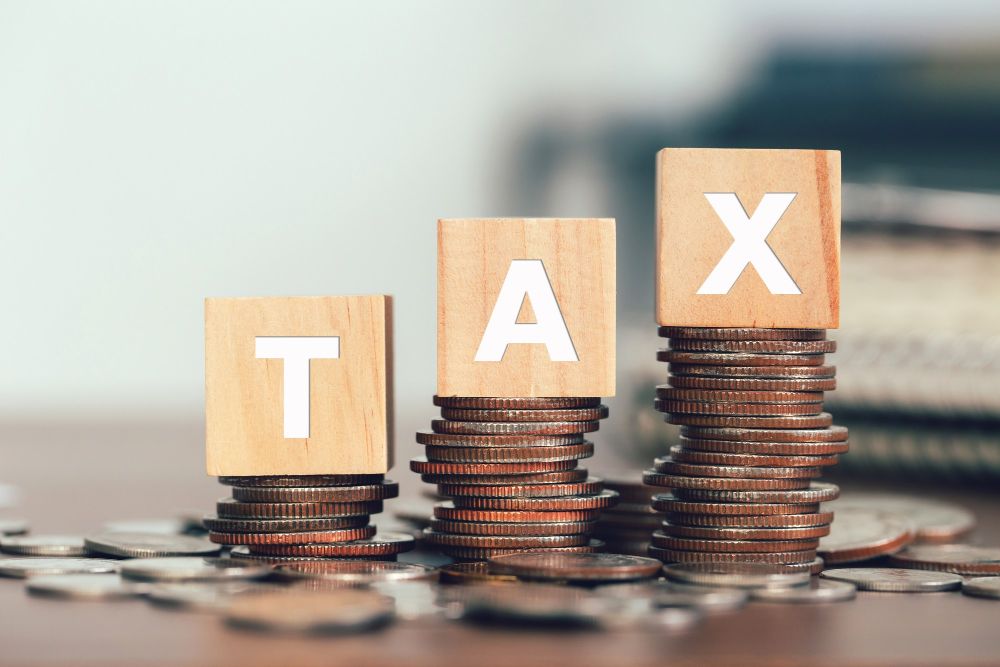Saving on taxes is an important part of making a plan for your money. A smart plan for tax planning can help people reach their financial goals and save tax money at the same time.
Tax-saving tools and sections of those tools:
Fixed Deposit
You can keep on taxes by placing money into tax savings, Fixed Deposits, which can help you take a tax break under Section 80C of the Indian Income Tax Act, 1961. By putting money into tax saver fixed deposits, you can get a tax break of up to Rs.1.5 lakh. These FDs can’t be touched for 5 years, and the interest earned is taxed. Most of the time, the interest rate is between 5.5% and 7.75%.
PPF ( Public provident scheme )
The Public Provident Scheme is a popular way to save money on taxes through investments. You can open a PPF account at the post office or certain public and private bank branches. It is long-term savings and investment product. You are guaranteed a certain interest rate when you put money into your PPF account. Under Section 80C, you can get up to Rs 1.5 lakh back on these deposits in a single financial year.
ULIP (Unit linked insurance plan)
ULIPs are long-term investments that let you choose between funds that invest in stocks, funds that invest in bonds, or both. ULIPs give you the freedom to change funds based on your financial goals. You can save on taxes under sections 80C and 10(10D) of the Income Tax Act, 1961, if you invest in ULIPs.
National Savings Certificates
National Savings Certificates are a type of savings bond that people with low to middle incomes can use to invest and save on income tax under Section 80C. If you have a savings account at a bank or post office and can use internet banking, you can buy NSC certificates in e-mode. Investors can buy NSCs for themselves, for a minor, or with another adult as a joint account.
Senior Citizen Savings Plan
The senior Citizen Savings Scheme is a way for people over 60 to save money backed by the government. It gives them a steady and secure source of income after they retire and gives them pretty good returns. Section 80C, Income Tax Act of 1961, you can deduct up to Rs. 1.5 Lakh from your taxes if you put money into an SCSS account.
But this exemption only works with the way taxes are set up now. Under the new system put in place by Union Budget 2020, an individual can’t do so. On the other hand, the interest received must be taxed based on the taxpayer’s tax bracket.
Life insurance
Life insurance is an important section of a person’s finances because it gives their family security in case something bad happens to them. This means that the person who brings in the most money is responsible for getting life insurance as soon as possible to protect the family. Traditional (endowment) life insurance and market-linked (ULIP) life insurance offer tax breaks on the premiums paid.
There is various sort of life insurance, such as:
No matter what kind, life insurance plans offer tax benefits to policyholders. Section 80C, Income Tax Act lets you deduct up to Rs 1.5 lakhs in premiums paid for life insurance. Section 10 says there is no tax on proceeds on death or maturity (D). If the policy is given up or ended within five years, the claimed deductions are added to the policyholder’s income and taxed accordingly.
- Term plans
- Endowment plans
- ULIPs or unit-linked plans
- Plans with money back
Pension plans
Another kind of life insurance is a pension plan. They have a different goal than other insurance plans, which are called protection plans and include term and endowment plans. Protection plans are meant to take care of the person’s family if he dies, while pension plans are meant to take care of the person and his family if he lives.
Section 80CCC, a sub-section of Section 80C of the Income Tax Act, discusses pension contributions. The total amount deducted under Section 80C’s sub-sections cannot be more than Rs 1.5 lakhs. At the end of the pension period, 1/3 of the amount saved is tax-free, while the other 2/3 is treated as income and taxed at the marginal tax rate. When the beneficiary dies, the amount is not taxed.
Health insurance or a Mediclaim
Health insurance, or Mediclaim as it is more commonly called, pays for costs related to accidents or hospital stays. Mediclaim also pays for costs before and after a hospital stay, up to the amount insured. Section 80D of the Internal Revenue Code says that health insurance can help you save money on taxes.
Tax breaks are available for insurance premiums up to Rs 20,000 for older adults and Rs 15,000 for everyone else. If the assured pays a premium of Rs 15,000 for his policy and Rs 20,000 for his elderly parent’s policy, he can get a tax break of Rs 35,000. The money you get at the end of a critical illness insurance policy is not taxed.
NPS
The Pension Funds Regulatory and Development Authority, or PFRDA, is in charge of the NPS, or New Pension Scheme. Anyone who lives in India and is between the ages of 18 and 60 can participate. It saves a lot of money because fund management fees are low.
The money is kept in three different accounts with different types of assets: equity (E), corporate bonds (C), and government securities (G) (G). Investors can choose to actively (active choice) or passively take care of their portfolios. Section 80CCD of the Income Tax Act talks about taxing contributions to the NPS.
This section and Sections 80C and 80CCC cannot let you deduct more than Rs 1.5 lakhs. Because there are so many options, NPS is great for people with different risk tolerances who want to save money for retirement.
Tax-saving mutual funds
Tax breaks are given to people who invest in tax-saving mutual funds, also called equity-linked savings schemes (ELSS). Mutual funds that save on taxes invest in stock markets and other assets. They are best for investors willing to take moderate to high risks.
There have been no changes to investments for three years. Section 80C, Tax Act, investments in tax-saving mutual funds can be made up to Rs 1.5 lakhs. Section 10 says there is no tax on proceeds on death or maturity (D).


